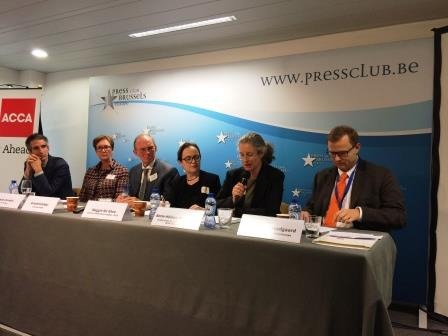International regulators and EU experts explored the challenges for the audit profession at a recent roundtable on professional scepticism in Brussels. The roundtable was arranged by the Association of Chartered Certified Accountants (ACCA), a global body for professional accountants. According to ACCA the issue of professional scepticism in audit remains a critical area, especially since the global financial crisis when audit firms overlooked errors and misstatements in the financial statements of companies and banks.
“Professional scepticism is about asking ourselves ‘how do we know and how can we be so sure?’,” said professor Arnold Schilder, chairman of the International Auditing and Assurance Standards Board.
“It is about asking critical questions. Audit quality is best achieved in an environment where there is both support and challenge from other stakeholders, such as audit committees”.
He added that “We need to talk about this topic because of two factors: complexity and uncertainty. Auditors need to share and explain to people the complexity of judgments behind numbers. We are humans, therefore biases cannot be avoided.”
International auditing standards define professional skepticism as an attitude that includes a questioning mind, being alert to conditions that may indicate a possible misstatement due to error of fraud, and a critical assessment of evidence.
Auditors’ perceived lack of professional scepticism is seen by audit oversight bodies and the public as being at the root of issues with audit quality. Regulators argue that, were auditors to be more sceptical, more misstatements in financial statements would be uncovered through the audit process.
Professional scepticism is rooted in the fundamental audit principle of objectivity but is influenced by inherent constraints in the audit process such as limited time and resources. Another constraint is the information asymmetry between the client and the auditor. The client has normally better knowledge about its business than the auditor does.
Furthermore, human decision-making is affected by a number of so-called cognitive biases which result in irrational or suboptimal decisions. The auditor is no exception to this risk.
In a recent report called Banishing bias? Audit, objectivity and the value of professional skepticism, ACCA is listing 12 types of cognitive biases, such as overconfidence, selective perception, group-think and blind-spot.
Maggie McGhee, Director of Professional Insights at ACCA, told The Brussels Times that both financial auditing and performance auditing are subject to constraints and the risk of cognitive bias. Even with clear-cut standards and norms, as is the case in financial auditing, there still is a risk of cognitive bias.
“It’s not even a result of complexity of financial reporting standards, or the use of judgement or assumptions in valuations. It results from the way in which our brains process information, and therefore we are always susceptible to cognitive bias in decision-making.”
Will rotation of auditors and audit firms mitigate the risk of cognitive bias in financial auditing?
“Rotation of audit firms is now a requirement of the EU Audit Regulation and Directive of 2014,” Maggie McGhee replied. “Public interest entities must put their audits up for tender at least every ten years and may reappoint their incumbent auditor once, for a maximum term of 20 years.”
“The precise rules on retendering frequency and reappointment are a member state option, and there are special dispensations for companies with two or more firms auditing jointly. Within the audit team itself, the engagement partner may serve for a maximum term of five years.”
She concluded that different types of cognitive biases are at play with a firm that has a history of auditing a company compared to a newly appointed auditor. It’s important to get the right balance between familiarity that supports audit quality and familiarity that might undermine it.”
M. Apelblat
The Brussels Times

